Thursday, August 27, 2009, 11:41 - Commentary
The British have a term for intrusive, heavy handed government: the Nanny State. It seems like the government is taking the term to a whole new level as we learn from the Daily Express.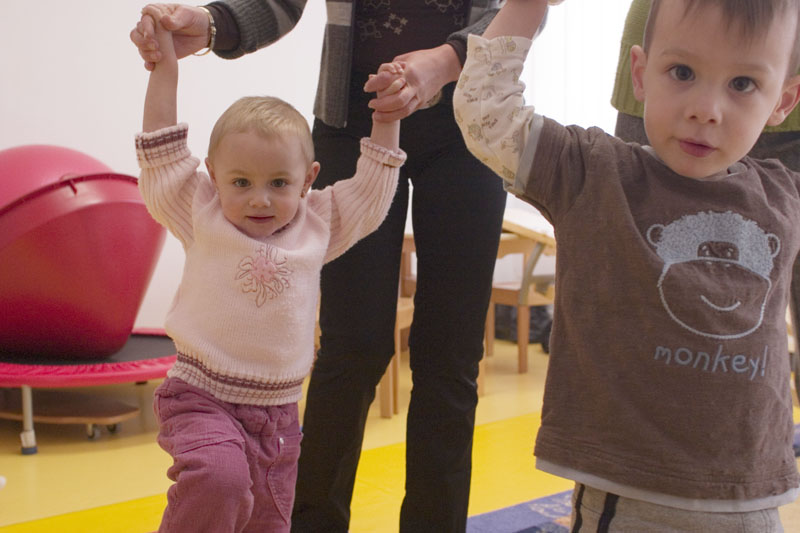
We’ve got our eye on you…
“The Children’s Secretary set out £400million plans to put 20,000 problem families under 24-hour CCTV super-vision in their own homes. They will be monitored to ensure that children attend school, go to bed on time and eat proper meals. Private security guards will also be sent round to carry out home checks, while parents will be given help to combat drug and alcohol addiction.”
It is hard not to be in favor of government helping families, especially those facing challenges. But what the British government is proposing, they’ve been dubbed “sin bins,” goes too far. The country that produced Orwell should be more sensitive to Big Brother like programs and it is doubtful that all this monitoring will actually have the intended effect. If anything it will most likely make people feel resentful. And of course watching someone on a video monitor does not actually help them become better parents. It is the easy way out for government officials who want results but don’t want to put the time and resources in to change the underlying circumstances…
| 0 trackbacks
| 



 ( 3 / 1708 )
( 3 / 1708 )




 ( 3 / 1708 )
( 3 / 1708 )
Wednesday, August 26, 2009, 11:25 - Commentary
What happens when a country has to change its perception about what it does best? In America that did happen in many ways as the economy shifted from manufacturing to a more service oriented economy. Right now it looks like Germany, long known for its precision manufacturing, is starting to have the same conversation.
I’d rather build it…
“In recent months, two big computer chip makers slipped through Dresden’s fingers, challenging the notion that an area that likes to think of itself as “Silicon Saxony” can continue to churn out high-technology devices by the millions. But not every inhabitant of this picturesque city considers that a bad thing.
“The loss has fired a debate over whether the future of Dresden, in what was once East Germany, should lie more in research and design, rather than manufacturing, and few are more passionate about the intellectual side of the chip-making business than the young entrepreneurs at Blue Wonder Communications. Barely four months old, the company is angling for a piece of the lucrative business in designing chips for the next generation of wireless technology.”
It is very healthy that Germany, along with much of the rest of Western Europe is spending an increasing amount of time looking forward towards the future. It is all too easy to simply keep doing what one is good it, it takes far more effort and risk to begin to transform what is at the heart of your identity. Of course this same conversation should be happening in many other areas of German and European society, namely immigration. But the talking has to start somewhere….
Tuesday, August 25, 2009, 19:41 - Commentary
The British have a term for intrusive, heavy handed government: the Nanny State. It seems like the government is taking the term to a whole new level as we learn from the Daily Express.
We’ve got our eye on you…
“The Children’s Secretary set out £400million plans to put 20,000 problem families under 24-hour CCTV super-vision in their own homes. They will be monitored to ensure that children attend school, go to bed on time and eat proper meals. Private security guards will also be sent round to carry out home checks, while parents will be given help to combat drug and alcohol addiction.”
It is hard not to be in favor of government helping families, especially those facing challenges. But what the British government is proposing, they’ve been dubbed “sin bins,” goes too far. The country that produced Orwell should be more sensitive to Big Brother like programs and it is doubtful that all this monitoring will actually have the intended effect. If anything it will most likely make people feel resentful. And of course watching someone on a video monitor does not actually help them become better parents. It is the easy way out for government officials who want results but don’t want to put the time and resources in to change the underlying circumstances…
Friday, August 21, 2009, 12:33 - Commentary, Photo of the Day
The class barriers that many Europeans, especially the British, face is nothing new. But just how pervasive a roadblock is class in the U.K.? Marketplace.com explores this issue in an excellent report.
What chance do I have?
“The government there is out with a new report on social mobility in the UK. It says lower-class Brits are routinely excluded from the top jobs. And professions like medicine and law are increasingly closed to all but the most affluent families.”
It is a startling report that is well worth listening to. The real question becomes what will British society do to reverse this trend? Do ordinary people see this as a problem or do they simply accept this as the way things are?
Wednesday, August 19, 2009, 11:22 - Commentary
Part of what we are trying to do here at The Europeans is give voice to those who are all too often ignored by the main stream media. Well sometimes the MSM gets it right and we turn to the Guardian to see how it is done.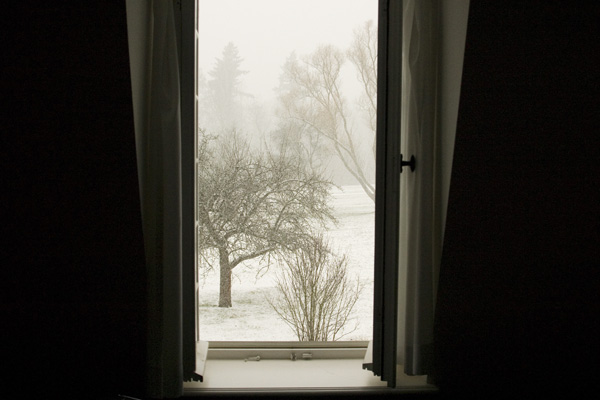
Through a window, darkly…
“The subtle images of seemingly mundane yet commonplace locations in the city shed light on the women's hidden lives and social exclusion. Lacking a visible red light district, women working in the sex industry in the north-east of England are particularly concealed. Many sex workers in Newcastle have been sexually and physically abused in their working lives. There is also a high level of substance misuse.
“Working with French-born photographer Magali Pettier, women involved in a weekly drop-in support group called Girls are Proud (GAP), at the homeless charity Tyneside Cyrenians, learned about the technical aspects of taking and developing photographs. They then took the images and used the project as a means of escaping from their covert activities, says Laura Seebohm, manager of women's services at Tyneside Cyrenians. "We work to develop confidence and self-esteem within this group. We decided a creative project such as photography was perfect."
The power of photography to empower people is almost hard to overstate. I highly recommend checking out the web gallery and seeing these images for yourself, they are very powerful…
Tuesday, August 18, 2009, 11:19 - Commentary, Photo of the Day
If the course of true love never runs smoothly can we not say the same thing for great science? We learn more from The New York Times.
We’re working on it!
“After 15 years and $9 billion, and a showy “switch-on” ceremony last September, the Large Hadron Collider, the giant particle accelerator outside Geneva, has to yet collide any particles at all.”
If you ever have a chance to visit CERN I highly recommend it. When you go there you can really get a sense of the scope of what they are trying to do. We should not be surprised that they have faced some serious challenges as they try to push back the frontiers of knowledge. What should impress us far more than the massive scale of the experiments is the level of cooperation not just between European scientists but from investigators and engineers from all over the world who have come together in the spirit of scientific advancement. When things get up and running it will be just one more example of how far Europe has come in the past fifty years…
Monday, August 10, 2009, 13:09 - Commentary, Photo of the Day
A lot has been said about the demise of photojournalism, a subject of particular interest to use here at The Europeans. The New York Times has a great article about the death of the great French photo agency Gamma.
Remains of the day. Vienna 2008. © Damaso Reyes
“Newspapers and magazines are cutting back sharply on picture budgets or going out of business altogether, and television stations have cut back on news coverage in favor of less-costly fare. Pictures and video snapped by amateurs on cellphones are posted to Web sites minutes after events have occurred. Photographers trying to make a living from shooting the news call it a crisis.
“In the latest sign of distress, the company that owns the photo agency Gamma sought protection from creditors on July 28 after a loss of €3 million, or $4.2 million, in the first half of the year as sales fell by nearly a third.”
Will bloggers and citizen journalists with their iPhones be able to replace professional photographers? In a word: no. It is not that these emerging practitioners do not have a role, just look at Iran. The real problem is that professionals go where tourists do not: war zones and conflict areas, places where the suffering is great and the attention is scant. Often the best and most compelling images come from months and years of work, something that cannot be easily replaced by open source journalism.
But the reality is that photojournalism is slowly dying. In another generation it will become the hobby of rich elites, since very few people will be able to making anything resembling a living at it. This is problematic because already journalism and photography suffers from a lack of diversity of voices. We don’t know what the solution is but we can certainly see the problem…
Monday, August 3, 2009, 12:37 - Commentary, Photo of the Day
The Europeans is going on summer break (in reality we are working on updating the website with lots of new images) so we won’t be posting that frequently for the next two weeks. Until then, he’s an interesting article about how we look at things from the New York Times.
Photographing the photographer. © Damaso Reyes
“Visiting museums has always been about self-improvement. Partly we seem to go to them to find something we already recognize, something that gives us our bearings: think of the scrum of tourists invariably gathered around the Mona Lisa. At one time a highly educated Westerner read perhaps 100 books, all of them closely. Today we read hundreds of books, or maybe none, but rarely any with the same intensity. Travelers who took the Grand Tour across Europe during the 18th century spent months and years learning languages, meeting politicians, philosophers and artists and bore sketchbooks in which to draw and paint — to record their memories and help them see better.
“Cameras replaced sketching by the last century; convenience trumped engagement, the viewfinder afforded emotional distance and many people no longer felt the same urgency to look. It became possible to imagine that because a reproduction of an image was safely squirreled away in a camera or cell phone, or because it was eternally available on the Web, dawdling before an original was a waste of time, especially with so much ground to cover.”
The full article is well worth reading. I have found myself buzzing through a museum, trying to see as much as I can. Of course when I go to see a specific exhibition I tend to slow down quite a bit but I do buzz by images or works that aren’t that interesting. Perhaps it is our fast paced lives but the author of the article goes on to say “Artists fortunately remind us that there’s in fact no single, correct way to look at any work of art, save for with an open mind and patience.”
Which is true! There are more ways of seeing the world than we can imagine and this fall The Europeans hopes to bring you more unique views!
Thursday, July 30, 2009, 10:49 - Commentary, Photo of the Day
Tempest in a tea cup or a real case of discrimination? That is the question many in Europe are asking. We learn more from the EU Observer.
Don’t tell anyone but you’re in! Stuttgart 2007 © Damaso Reyes
“The EU has tried to ward off any potential ill feeling in the Balkans after quickly accepting Iceland's accession bid.
“EU foreign ministers in Brussels on Monday (27 July) restated their "full support for the European perspective of the Western Balkans" and promised to shortly recognize Albania's application.”
This two tiered system, regardless of the economic necessity that brought on Iceland’s rapid acceptance, should worry those who see the European Union as a place of equality. Of course there are major differences between Iceland’s society and economy that make E.U. ascension far easier than developing economies like those of the Balkans which are still trying to overcome corruption and the legacy of Soviet rule. Nevertheless, just as Caesar’s wife must be above reproach the system whereby nations are admitted into the E.U. must also be seen as fundamentally fair and just, otherwise what little faith in the system there is, especially among those on the outside looking in, will be lost. Over the past few years the rate of support among application nations for E.U. membership has diminished and the Euroskeptics has found a great deal of support. This will simply give them more ammunition.
Tuesday, July 28, 2009, 10:27 - Project News, Commentary
It’s all about changing the way people see the world, especially Europe, here at The Europeans. A big part of how we do that is through photographs. I am sure you’ve enjoyed the images we’ve posted over the years but I also know that some of you long to hold these images in your hands.
Now you can!
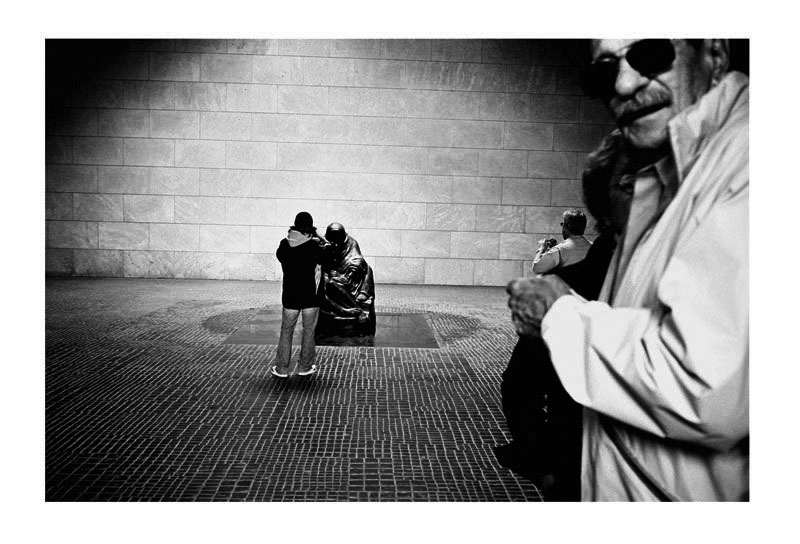
We’ve created a series of limited edition postcards, 100 of each image. These postcards are not for sale, we’re giving them away for free! Just send an email to info [at] theeuropeans.net with your postal address and in a few days, or weeks depending on where in the world you are at, you will receive a postcard in the mail (sorry you don’t get to choose which one).

We hope to make this an ongoing project so stayed tuned for more details!
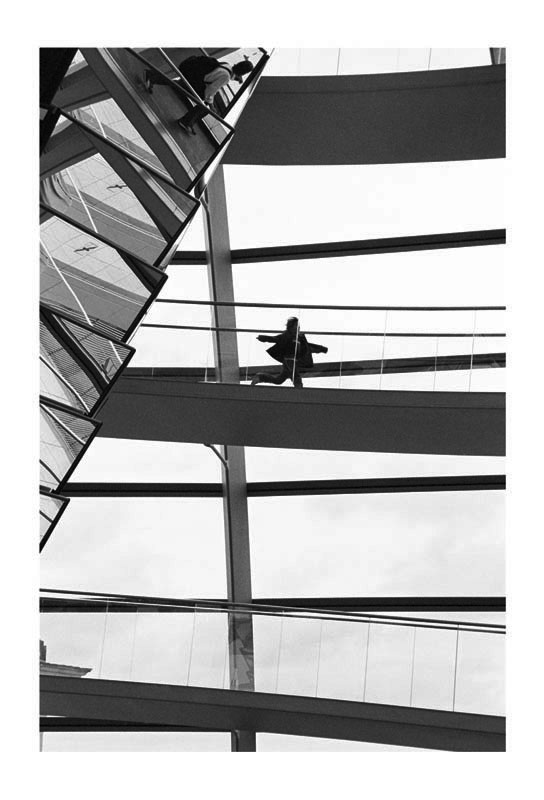
Friday, July 24, 2009, 10:26 - Commentary, Photo of the Day
What happens when you finally get what you’ve been fighting for? In Sweden, we see what gays and lesbians have been up to lately. More from The Local.
The flower of freedom is in bloom. © Damaso Reyes
“More female than male same-sex couples have chosen to marry since Swedish homosexuals were granted the legal right to marry on May 1st, 2009.
“Thirty-seven female couples have tied the knot since May, compared to 11 male couples, according to figures from Statistics Sweden (SCB).”
Perhaps it is too soon to tell but it certainly is interesting. What I wonder is now that several E.U. states have legalized gay marriage how long until the rest follow. In many ways it mirrors what is happening in the United States. Will gay marriage become universal through the ballot, the legislature or through the courts? In many ways this issue will be a test of national sovereignty versus European values of equality and freedom. The next few years will be very telling…
Wednesday, July 22, 2009, 11:17 - Commentary, Photo of the Day
In many ways, from banking to social benefits Europe is light years ahead of America. It seems like Europeans are also warming to the idea of electronic books and more importantly European publishers, unlike their American counterparts, are taking the bull by the horns when it comes to eBooks. 
The future is now. © Damaso Reyes
“Spain has not been on the leading edge of the digital revolution up to this point. Now, after years of observing how the market has developed in other countries, the biggest publishing groups in Spain have decided the moment has come to take a big step forward - and they will do it together. Planeta, Random House Mondadori, and Santillana, which together make up some 70% of the market, are joining forces to set up a digital distribution company for ebooks. This initiative will go hand in hand with a major marketing effort starting with a splashy launch of e-books and e-readers this holiday season through at least one major retailer. They have set a goal of having every frontlist title able to be published simultaneously in both print and ebook form by mid 2011.”
This is great news. American publishers have refused to learn the lessons of the music industry and seem to be fighting eBooks tooth and nail. Making books available digitally will also increase trade among Europeans. Labor is incredibly mobile in Europe with tens of thousands of expatriates in each E.U. member state. If you are a Spainard living in Germany, isn’t it easier to get a book by your favorite author digitally then ordering it via mail? If you happen to be learning a foreign language this will no doubt be a boon as well.
Tuesday, July 21, 2009, 12:11 - Commentary, Photo of the Day
The E.U. Constitution is dead. Long live the E.U. Constitution. We learn more from Der Spiegel.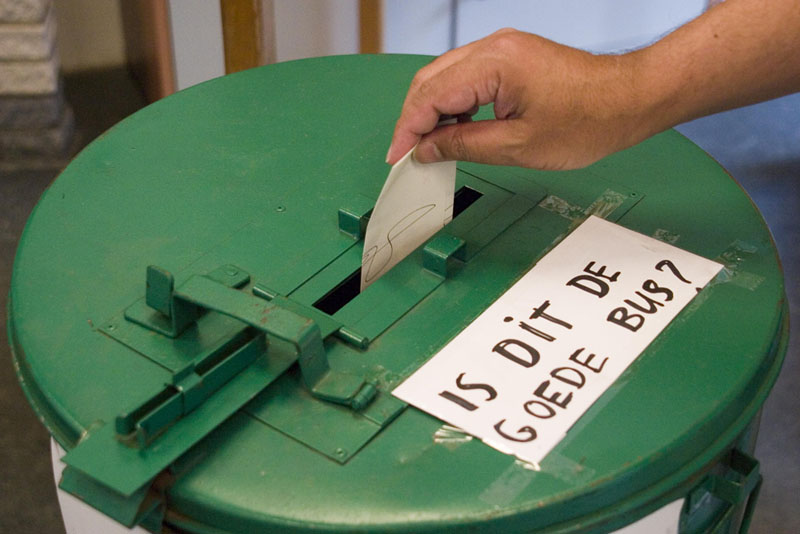
Is this the right box? We shall see. The Netherlands 2005 © Damaso Reyes
“The date is set. The second referendum in Ireland on the European Union's Lisbon Treaty will take place on Oct. 2, the government in Dublin announced Wednesday.
“Prime Minister Brian Cowen said that he was confident that voters would approve the treaty this time around. Last year, Irish voters' rejection of the treaty plunged the EU into a deep state of crisis.”
Will the leaders of Europe learn from their mistakes and actually stump hard for this treaty? Honestly I doubt it. The referendum may pass anyway but I see few signs that Europe’s pro-Union faction has shaken off the old approach of simply telling the voters what to do. The passion seems to be all on the Europskeptic side. The Prime Minister on down should be actively and aggressively trying to convince voters that a stronger Europe is in their favor. If they don’t it could be a repeat of the bad old days…
Wednesday, July 15, 2009, 13:15 - Commentary, Photo of the Day
Protesting in Europe is a time honored tradition. Some young people see hurling paving stones at “the man” as a rite of passage. In the eyes of many no event more symbolizes global capitalist oppression than the G-8 summit, held this year in Italy. But for some reason the protestors have not booked their EasyJet tickets. 
“Where is everyone?” London 2005. © Damaso Reyes
“But the globalization critics from around the world who have descended on every major international summit since 1999 are largely absent this week. And the tents erected in L'Aquila are not the mass campgrounds of protesters that have become a familiar sight at these kinds of summits, they are the temporary domiciles for tens of thousands of local residents who lost their homes in the quake.”
“The few protests that are taking place are happening in large cities elsewhere in Italy. In Rome on Tuesday, around 150 protesters marched through the streets. Smaller demonstrations were also held in Turin and Bologna.”
Has the spirit of those fighting for the international worker faded? I doubt it? But just when you would think that an organized critique of the system would have the most weight it seems to be absent in large part. Some of this may be due to the economic downturn itself with fewer protestors having the extra money to hop on a plane and challenge the system for a week. It could also be that protestors are finding more interesting ways of expressing themselves via the internet and perhaps even voting. This engagement, much more so than marching, has pushed many of the agenda items of the left, like social and environmental justice, well into the mainstream. Given the state of the millions who find themselves out of work and struggling throughout Europe those who love to carry the banners and man the barricades have not quite put themselves out of work…
Monday, July 13, 2009, 11:03 - Commentary, Photo of the Day
The global economic crisis is being deeply felt throughout Western Europe. Despite generally having a world class social safety net unemployment in some countries is nearing 20%, straining the system. As we’ve mentioned here before, the Spanish economy is increasingly coming under pressure. We learn more from The Economist.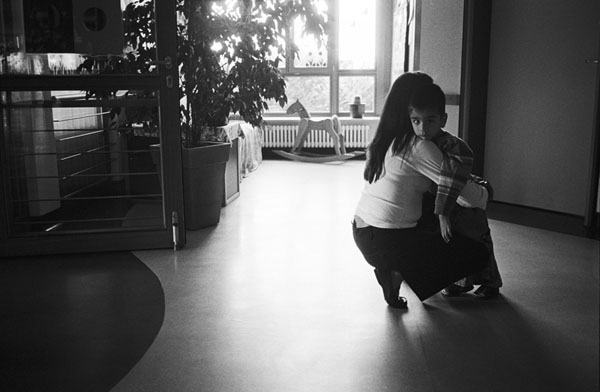
“No, it won’t be alright.” Germany 2007. © Damaso Reyes
“The fate of Spanish workers is a story of contrasts. Some have never had it so good; others have never had it so bad. Spain has the European Union’s highest unemployment and one of its less generous welfare systems. It has shed 1.2m jobs in a year. It will soon have as many jobless as Italy and France combined. Pay rises for some have led employers to cut the jobs of others. Two-thirds of workers have armour-clad permanent contracts. But the rest are on short-term deals. They are the people now on the dole.
“This two-tier labour market divides workers into a privileged group cocooned from the reality of recession and the disadvantaged on temporary contracts, in unemployment or in illegal jobs. Employers do not invest in training short-term workers and are wary of hiring on permanent contracts. At any hint of a slowdown they shed the short-timers. “That the crisis has hit Spanish employment disproportionately is due to the catastrophic way the labour market works,” argues Luis Garicano of the London School of Economics.”
The very rules that protect workers seem to be threatening the chances of those who find themselves out of work. This is not to say Spain or other European nations should move toward the American model where workers are constantly in peril. It does seem that the labor laws in many European nations need to evolve both to give employers more flexibility in hiring as well as to give workers a better chance at getting jobs and off the unemployment line. As stark as the consequences of inaction may be it looks like things are not going to change anytime soon…
Back Next


 Calendar
Calendar




